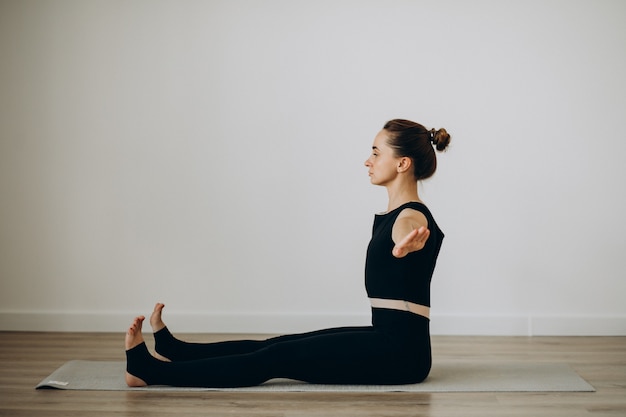
A yoga body isn’t just about flexible limbs; it can actually improve memory, heart, and bone health. We’ve become a nation crazy about yoga, spending around £790 million yearly on classes and mats.
Yoga has evolved in strange ways, with hybrids like rage yoga, naked yoga, and even dog yoga. Despite this, its real benefits are being supported by science. Researchers from UCLA found that a three-month yoga and meditation course was more effective than memory exercises for reducing age-related brain impairment. Another study found yoga could improve sleep for breast cancer survivors.
When Lucy Edge, a 53-year-old former advertising executive, fell into deep depression, she chose yoga over prescribed antidepressants. She took a six-month break to learn yoga in India. Though she didn’t achieve the “yoga goddess” body, she returned happier and more content. Lucy has since written three books on yoga and started Yoga Meds, showcasing over 300 clinical trials on yoga’s benefits for conditions like arthritis, insomnia, and obesity.
If you’ve been relying on crossword puzzles and Sudoku for memory training, it might be time to add some yoga. A UCLA study showed that, compared to memory exercises, yoga and meditation improved older adults’ spatial and visual memory, reduced depression and anxiety, and increased stress resilience. The participants did one hour of Kundalini yoga a week and 20 minutes of daily Kirtan Kriya meditation.
For heart health, yoga might be just as effective as conventional exercise like brisk walking. A 2014 review found yoga can lower heart disease risk. Stress, a major heart disease contributor, can be reduced through yoga, lowering blood pressure and heart rate. Dr. Mike Knapton from the British Heart Foundation highlights yoga’s benefits for emotional health, including anxiety, stress, and depression, especially in cardiac patients.
To get started with yoga, try beginner-friendly styles like Hatha or Iyengar, especially if you have health issues or back pain. Consult your doctor to see if you qualify for subsidized yoga classes.
Choosing the right yoga mat is important. Consider where you’ll keep it and whether you’ll need to carry it often. A thicker mat can better protect your joints.
Healthista recommends the Elephant Cork Yoga mat from Valka Yoga. It’s eco-friendly, made from organic cork and natural rubber, and offers good joint support. Cork is antimicrobial and odor-resistant, making it great for hot yoga. It comes with a carry strap, 15-day money-back guarantee, and a one-year replacement warranty. Valka also offers a matching yoga block for added stability in challenging poses.
Not very flexible? No problem. Yoga benefits everyone. For a gentle introduction, try Yin or Restorative yoga with blankets and cushions, or a more energetic Vinyasa Flow class that links postures to breath. Iyengar and Anusara yoga focus on alignment and use props, making them great for beginners. Yoga Therapy can help heal injuries or illness with trained teachers.
Lucy Edge’s latest book, “Down Dog Billionaire,” is available on Amazon.